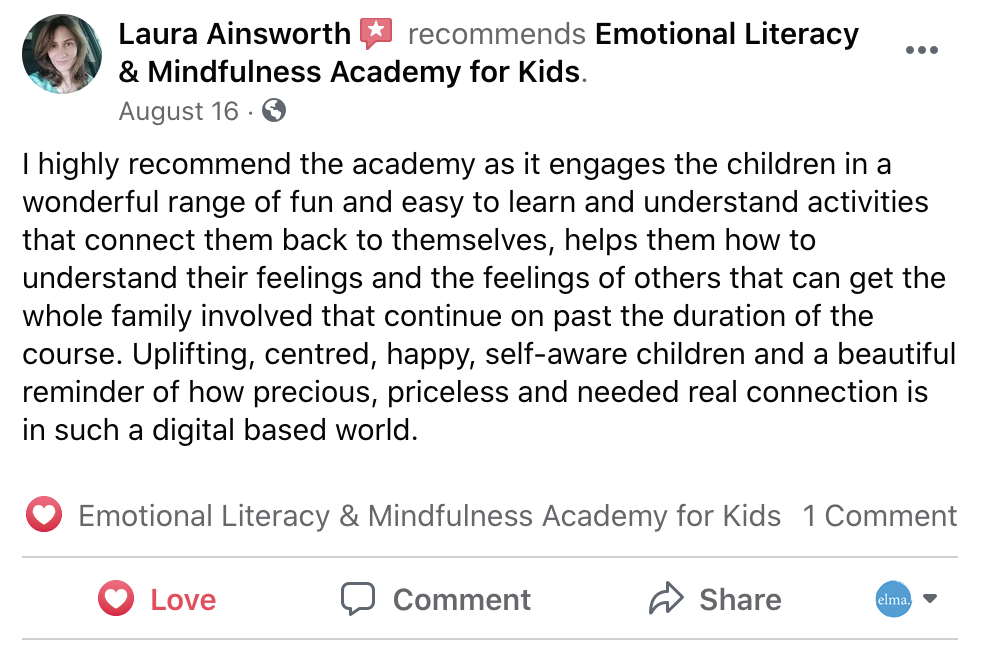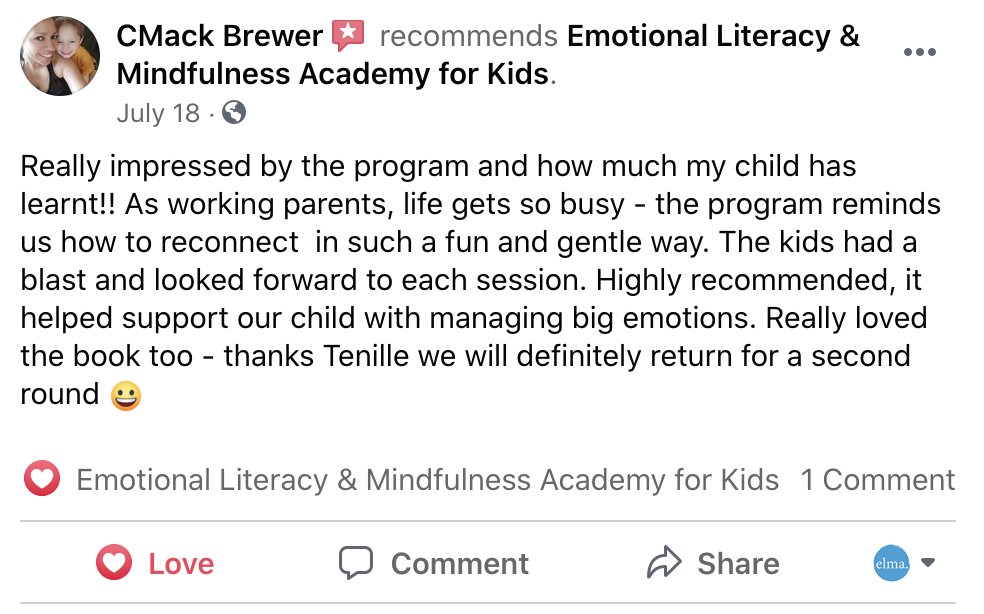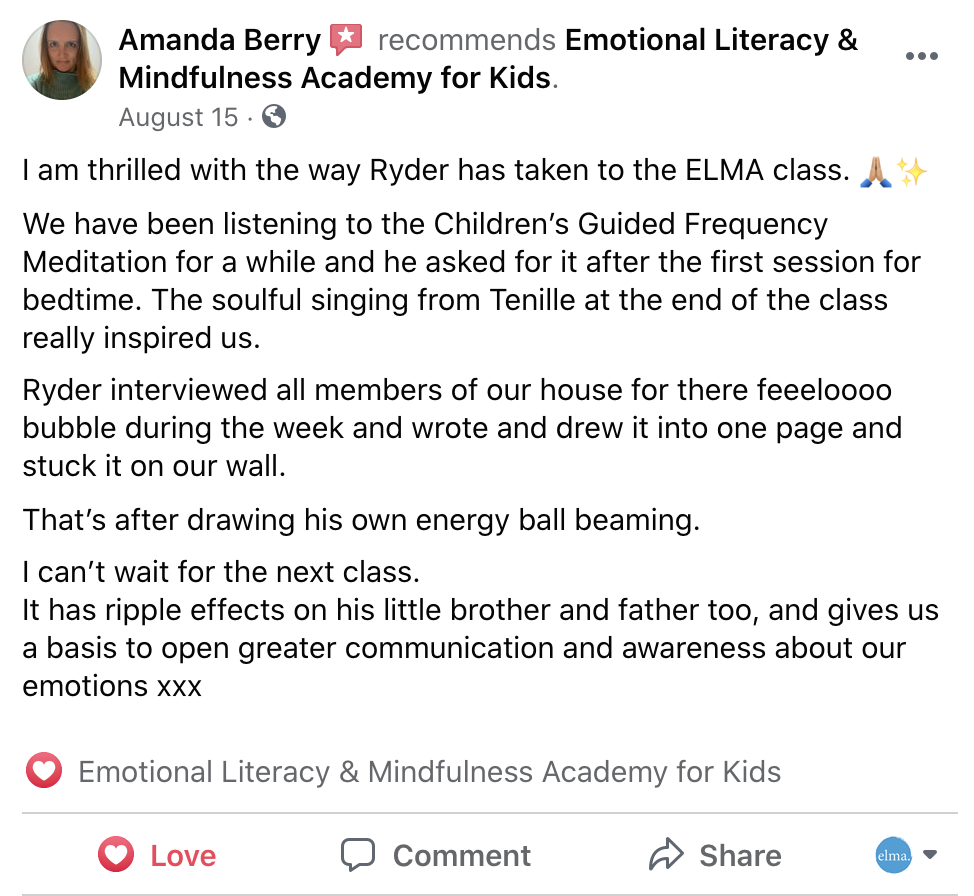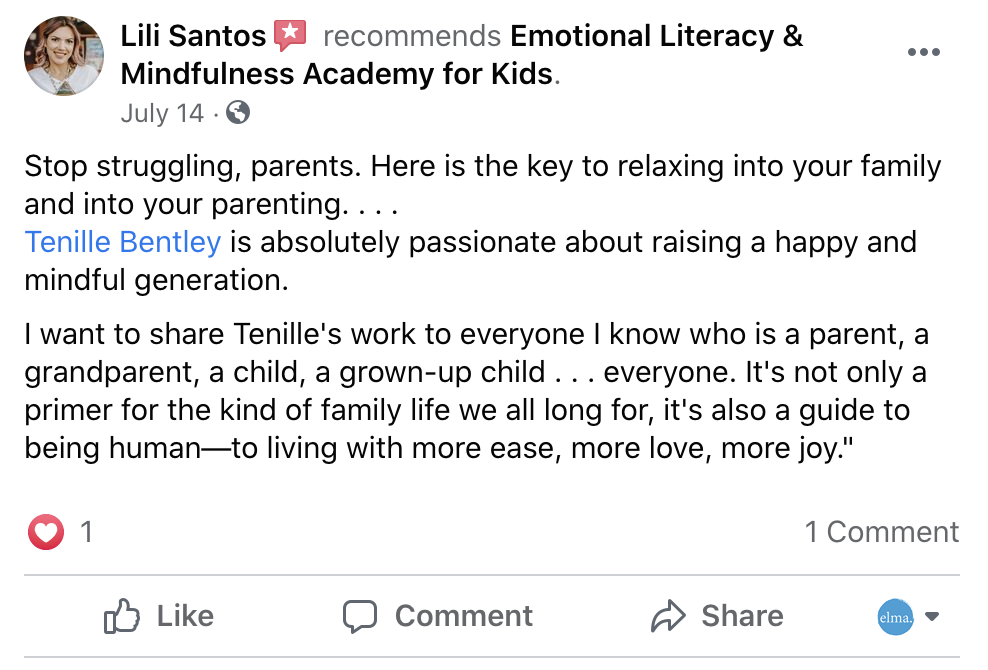
Our vision is to build a community of qualified instructors within the academy around the world who believe in the duty of care we have to our next generation. We are instructors of integrity and will play a vital role in eliminating the cognitive bias toward violence in order to bring peaceful solutions. We are the solution to unplugging a plugged in generation.
Have a look inside the training >
Why would you want to become an instructor?
You can literally create positive change in your local community and make a generational impact to help us with our goal of eliminating the cognitive bias toward violence in order to bring peaceful solutions to our next two generations. You will also be a part of the solution to unplugging our plugged in generation.
You may also have the desire to teach our programs to your local community and see the impact for yourself first hand.
What is the energy ball?
Take a look at our little story about what the energy ball concept is all about.
This is a story about two chickens that explore their emotions, compassion, kindness and advanced skills in emotional literacy. A great bed time story for children and we also have hard copy versions of this book here.
ELMA is a social and emotional development tool for children, parents and educators. Our ‘family integration’ programs support children’s emotional wellbeing, resilience, empathy and compassion.
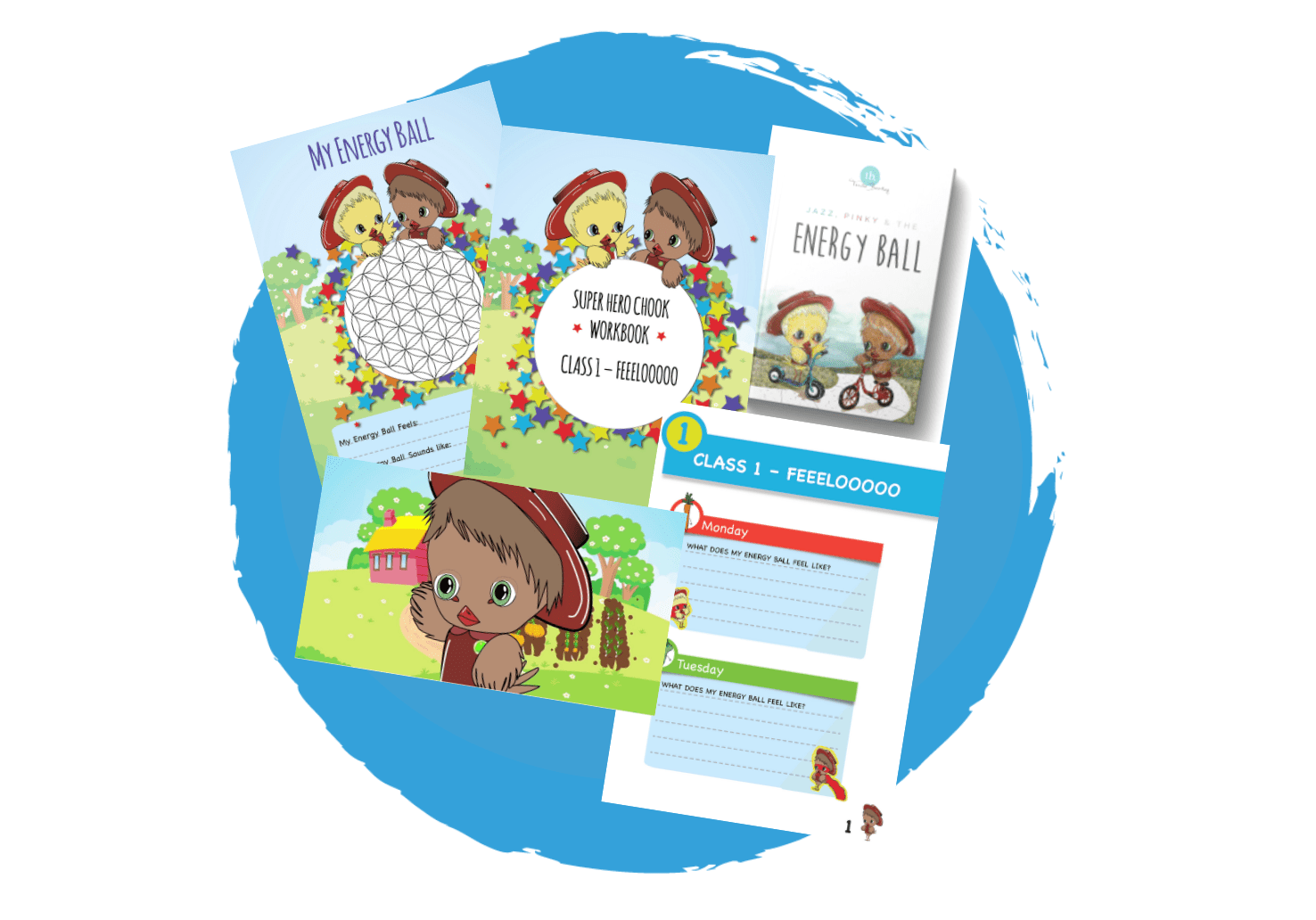
37 Lesson Plans
Each lesson is approximately 10minutes in duration and can be repeated and taught in a play therapy style environment.
6 modules + Bonus module
Each Module consists of 6 lessons, these modules can be done in 10 minute daily exercises or full one hour blocks. Repeating throughout the year.
8 workbooks
Each workbook is given to the child to fill out with their parents, as part of the family integration model, we also encourage the parents to fill out the sections too.
15 cartoons
With every module teachers receive a specific cartoon to play to the class, over time the kids become very attached to Jazzy and Pinky the Chickens. These cartoons are fun and interactive.
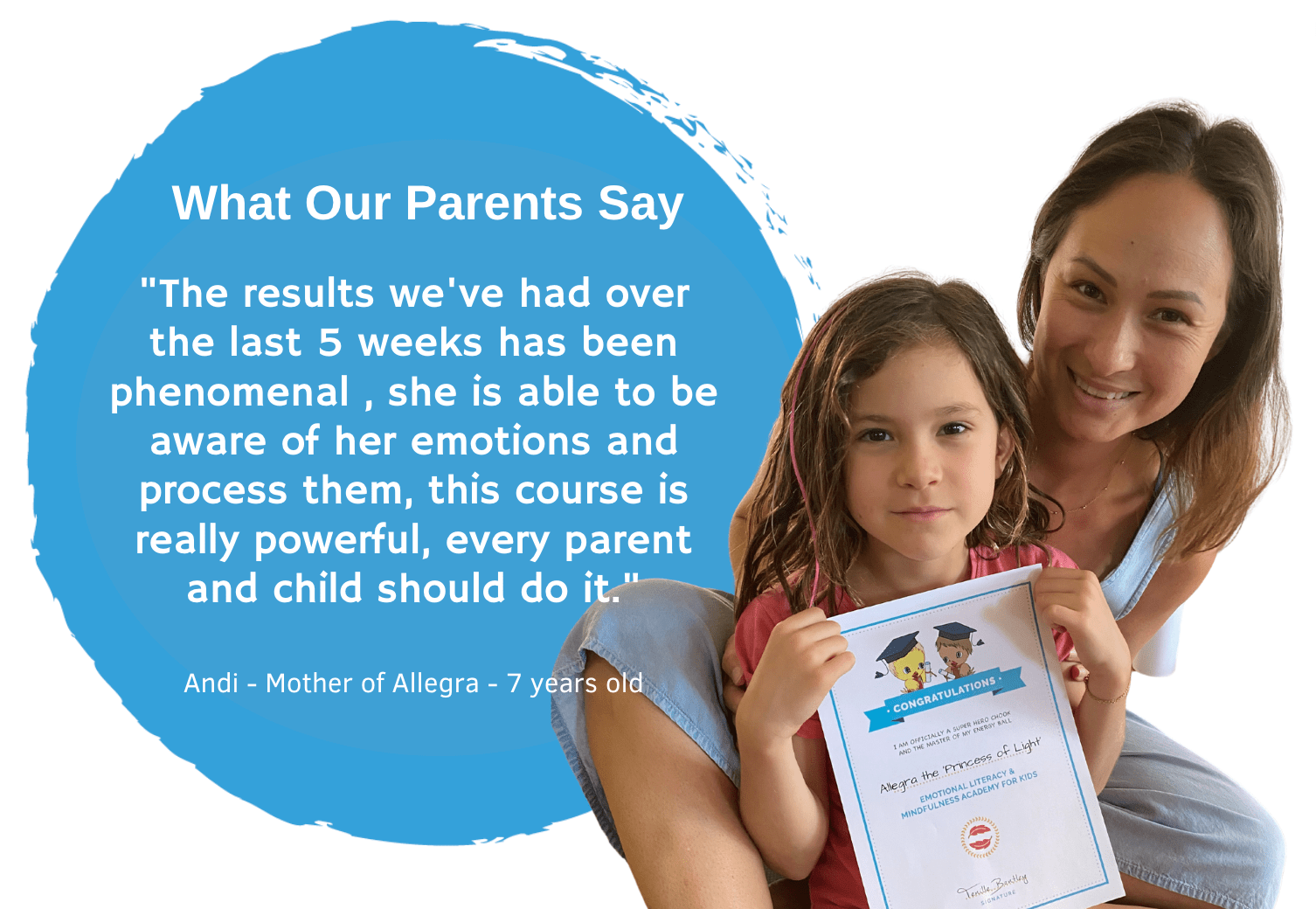
Why this is important for our future?
“Recent advances in neuroscience are highlighting connections between emotion, social functioning and decision making that have the potential to revolutionize our understanding of the role of affect in education. In particular, the neurobiological evidence suggests that the aspects of cognition that we recruit most heavily in schools, namely learning, attention, memory, decision making and social functioning, are both profoundly affected by and subsumed within the processes of emotion”.**
** Ref: Heartmath Institute Facilitating Emotional Self-Regulationin Preschool Children:Efficacy of the Early HeartSmarts®Program in Promoting Social,Emotional and Cognitive Development
Mary Helen Immordino-Yang & Antonio Damasio“We Feel, Therefore We Learn: The Relevance of Affective and SocialNeuroscience to Education.” Mind, Brain and Education, 2007, 1(1): 3.
“With about 50 per cent of mental health disorders beginning before the age of 14 years, prevention and early intervention are paramount if we want to reduce lifetime prevalence of mental health disorders and allow children to live their best possible lives. Improving mental health for children and adolescents has therefore become an international priority.”
Murdoch Children's Research Institute
Full Alignment with School Curriculum Social & Emotional Learning Continuum
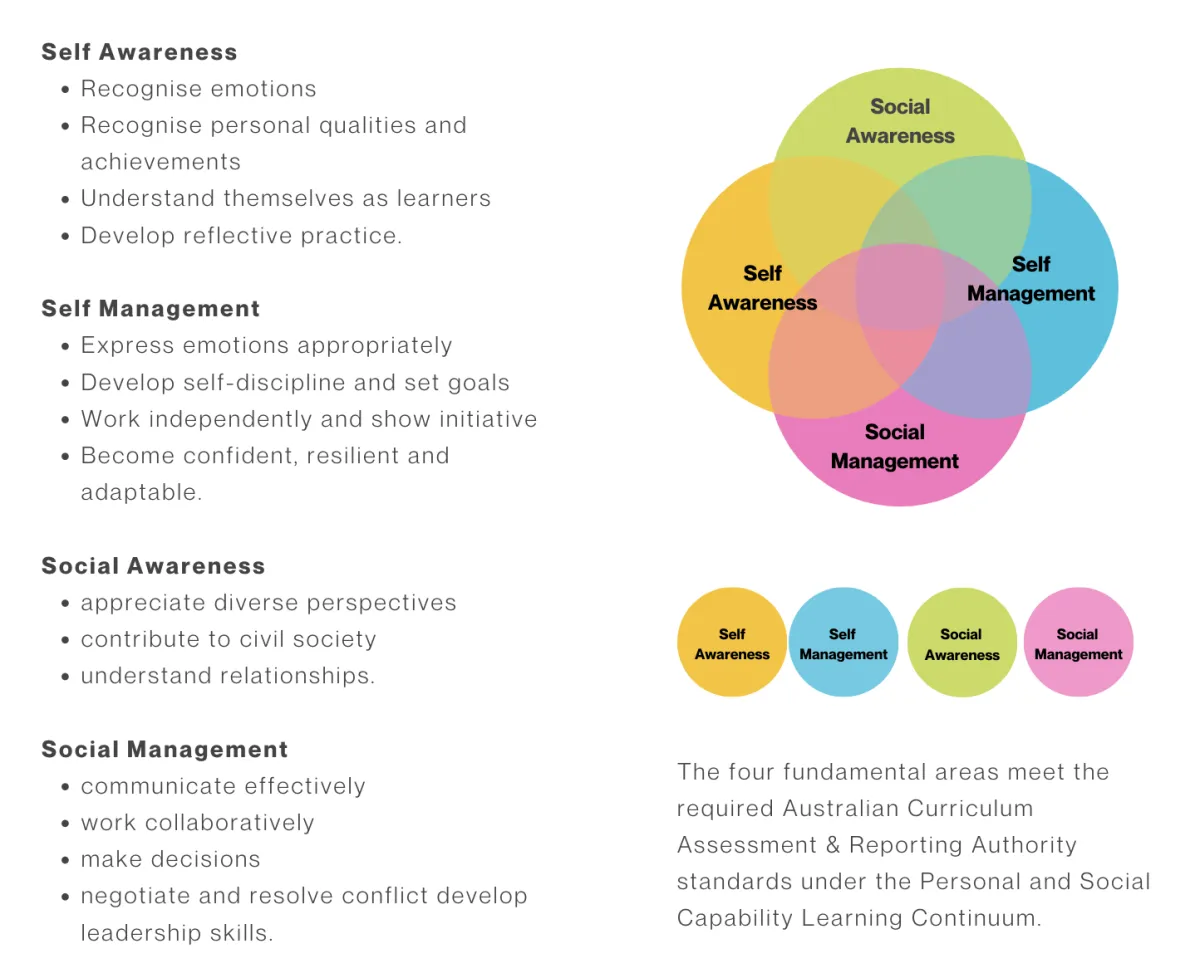
What Our Community Says....
